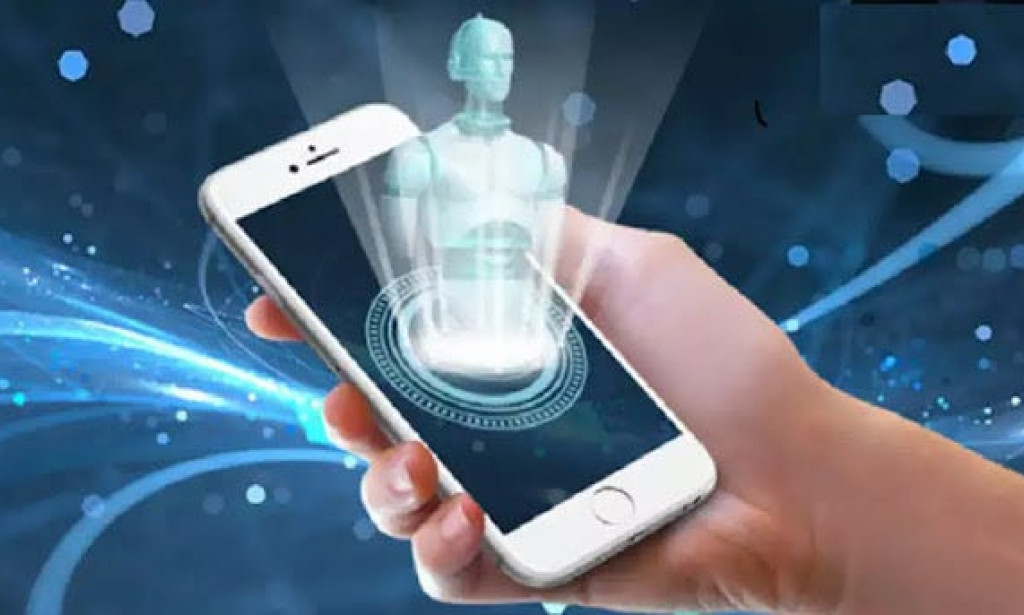Table of Contents
- Introduction: The Rise of AI in Smartphones
- AI-Powered Cameras: Revolutionizing Mobile Photography
- Smart Assistants: Your AI-Powered Digital Companion
- AI and Battery Optimization: Enhancing Efficiency
- AI in Security: Face Recognition and Beyond
- AI for Real-Time Language Translation
- The Future of AI in Smartphones
1. Introduction: The Rise of AI in Smartphones
Artificial intelligence has rapidly become a core feature of modern smartphones, enhancing performance, user experience, and functionality. AI enables devices to learn user behavior, optimize processes, and provide intelligent suggestions tailored to individual needs.
The integration of AI in smartphones started with basic automation features but has now evolved into advanced capabilities such as real-time processing, contextual awareness, and predictive analytics. From facial recognition to personalized recommendations, AI-driven innovations have made smartphones indispensable tools for daily life.
2. AI-Powered Cameras: Revolutionizing Mobile Photography
One of the most noticeable applications of AI in smartphones is in photography. AI-powered cameras can automatically adjust settings like brightness, contrast, and focus to produce high-quality images, even in challenging lighting conditions. Features like Night Mode, Portrait Mode, and AI scene detection use deep learning algorithms to enhance images in real time.
Additionally, AI enables computational photography, where multiple frames are combined to create sharper, more detailed photos. This technology is particularly useful in features like Google’s HDR+ or Apple’s Deep Fusion, which analyze and process images pixel by pixel for stunning results. AI also enhances video recording by stabilizing footage, improving dynamic range, and even generating realistic background blur effects.

3. Smart Assistants: Your AI-Powered Digital Companion
AI-driven voice assistants like Apple’s Siri, Google Assistant, and Samsung’s Bixby have become integral to modern smartphones. These assistants leverage natural language processing (NLP) and machine learning to understand user commands, answer questions, and perform tasks hands-free.
Voice assistants can schedule appointments, control smart home devices, send messages, and even provide real-time weather updates. AI advancements have improved their contextual understanding, making them more conversational and capable of anticipating user needs. The ability to integrate with third-party apps has further expanded their functionality, allowing users to book rides, play music, or check stock prices effortlessly.
4. AI and Battery Optimization: Enhancing Efficiency
Battery life is a major concern for smartphone users, and AI is playing a crucial role in optimizing power consumption. AI-based battery management systems analyze user habits, predict app usage patterns, and allocate resources accordingly.
For example, AI can automatically limit background activity for infrequently used apps, reducing unnecessary power drain. Features like Adaptive Battery in Android and iOS’s optimized charging use machine learning to extend battery lifespan by adjusting charging cycles based on user behavior. AI-driven power management ensures a balance between performance and efficiency, enhancing the overall smartphone experience.
5. AI in Security: Face Recognition and Beyond
AI has significantly improved smartphone security, making devices more secure and user-friendly. Facial recognition, powered by AI and 3D depth-sensing technology, allows users to unlock their phones, authorize payments, and secure sensitive data with just a glance.
AI-driven biometric authentication systems, like Apple’s Face ID and Samsung’s Intelligent Scan, analyze facial features with precision and adapt to changes in appearance over time. Machine learning helps detect spoofing attempts, preventing unauthorized access through photos or masks.
Beyond face recognition, AI enhances smartphone security by identifying potential threats, such as malware or phishing attacks. AI-based threat detection systems continuously analyze app behavior to prevent security breaches, keeping user data safe.

6. AI for Real-Time Language Translation
Language barriers are no longer a major obstacle thanks to AI-powered real-time translation. Smartphones now feature AI-driven translation tools that enable seamless communication across different languages.
Apps like Google Translate and Apple’s Translate use neural machine translation (NMT) to provide more accurate and context-aware translations. AI can also transcribe live conversations and generate subtitles in real time, making global communication easier. With offline translation capabilities, AI ensures that language support is available even without an internet connection, benefiting travelers and international business professionals alike.

7. The Future of AI in Smartphones
The future of AI in smartphones is promising, with advancements expected to enhance personalization, automation, and connectivity. AI-powered smartphones will continue to evolve with smarter features such as predictive texting, real-time emotion analysis, and hyper-personalized recommendations.
With the rise of 5G and edge computing, AI-driven features will process data faster and provide near-instantaneous responses. Augmented reality (AR) and AI integration will further transform gaming, shopping, and social interactions. Additionally, ethical AI considerations, such as user privacy and bias reduction, will play a crucial role in shaping the next generation of AI-driven smartphones.



You must be logged in to post a comment.